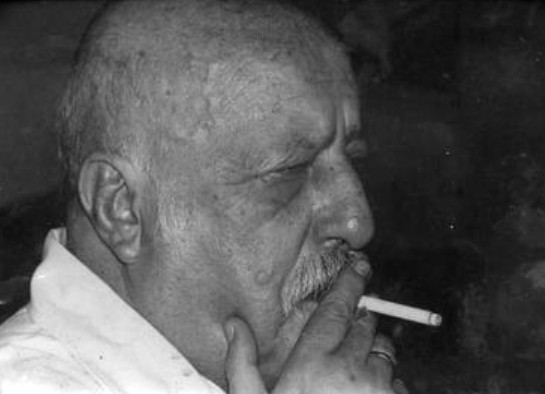Francisco Tobar García (Quito, November 3, 1928 – Quito, February 1, 1997) was an Ecuadorian poet, playwright, novelist, essayist, journalist, literary critic, diplomat, and university professor. He earned a Ph.D. in Literature from the Pontifical Catholic University of Ecuador and held teaching positions at universities such as La Plata in Argentina, the Sorbonne in Paris, and Complutense in Madrid. He revitalized Ecuadorian theater with his plays and published several notable works of poetry and fiction, including Pares o nones and Autobiografía admirable de mi tía Eduviges, which critics consider his masterpiece. He also served as a diplomat in Spain, Haiti, and Venezuela.
Early Life and Education
Francisco Tobar García was born in Quito, Ecuador, in 1928, into a family deeply rooted in Ecuadorian society. His father, Julio Tobar Donoso, was a prominent figure, and his mother, Ángela García Gómez, was the niece of President Gabriel García Moreno. He grew up in a strict Catholic household, which greatly influenced his early life. He began his formal education in religious institutions, attending Colegio San Gabriel in Quito, where his teachers introduced him to classical literature, sparking his passion for writing.
Tobar García went on to pursue higher education at the Pontifical Catholic University of Ecuador, where he earned a Ph.D. in Literature. His academic journey extended beyond Ecuador, as he became a visiting professor at prestigious institutions such as the University of La Plata in Argentina, the Sorbonne in Paris, and the Complutense University of Madrid.
Literary Career
Tobar García’s literary debut came in 1951 with the publication of his poetry collection, Amargo. The collection was well-received by critics, who noted his unique lyrical style that blended cultural depth with a stark, formal hermeticism. He followed this with additional poetry collections, including Segismundo y Zalatiel (1952), Naufragio y otros poemas (1962), Dhanu (1978), and Ebrio de eternidad (1992), works that solidified his place as one of Ecuador’s foremost poets.
His contributions to Ecuadorian literature extended beyond poetry. Tobar García made significant strides in drama, founding the Teatro Independiente in 1954, which revitalized Ecuadorian theater through his original plays like Las ramas desnudas, La dama ciega, and Cuando el mar no existía. These works were compiled in two volumes: Tres piezas de teatro (1962) and Grandes comedias (1981). His plays are noted for their incisive commentary on social issues, particularly the struggles of the middle class and the rigid norms of Ecuadorian society.
In addition to his work in poetry and theater, Tobar García also became a notable novelist. His first novel, Pares o nones (1979), won the Marbella Prize in Spain, showcasing his gift for blending irony, humor, and biting social critique. This was followed by La corriente era libre (1979) and his critically acclaimed masterpiece, Autobiografía admirable de mi tía Eduviges (1991), a satirical exploration of Ecuadorian society through the lens of a fictional aunt.
Diplomatic and Academic Career
Parallel to his literary endeavors, Tobar García had a distinguished career in diplomacy. He served as a diplomat for the Ecuadorian government in Spain, Haiti, and Venezuela, often balancing his diplomatic responsibilities with his writing. He was also actively involved in Ecuador’s cultural institutions, serving as the director of the publishing division of the House of Ecuadorian Culture.
His academic work was equally impressive. Throughout his life, Tobar García was invited as a guest professor at several prestigious universities across Latin America and Europe. His lectures and seminars on Latin American literature were widely attended, and he became a key figure in spreading Ecuadorian literature internationally.
Personal Life
Tobar García’s personal life was complex. He was known for his intense intellectualism, rebellious nature, and critical view of the Catholic faith, which he eventually abandoned in favor of agnosticism. Despite his successes, his personal relationships, especially his marriages, were often troubled. His third wife, Elena Caicedo Tenorio, cared for him in his final years as his health deteriorated due to lung cancer.
Legacy and Death
Francisco Tobar García died on February 1, 1997, in Quito, after a battle with lung cancer. His death marked the end of a prolific career that had a lasting impact on Ecuadorian literature, particularly in poetry and theater. His works remain celebrated for their depth, wit, and fearless critique of society, earning him a place among the most important literary figures of 20th-century Ecuador.
Selected Works
Poetry:
- Amargo (1951)
- Segismundo y Zalatiel (1952)
- Naufragio y otros poemas (1962)
- Dhanu (1978)
- Ebrio de eternidad (1992)
Plays:
- Tres piezas de teatro (1962)
- Grandes comedias (1981)
Novels:
- Pares o nones (1979)
- La corriente era libre (1979)
- Autobiografía admirable de mi tía Eduviges (1991)
Short Stories:
- Los quiteños (1991)
References
- Wikipedia, “Francisco Tobar García.” Retrieved on October 13, 2024. Click to view.
- MCN Biografías, “Tobar García, Francisco.” Retrieved on October 13, 2024. Click to view.
- Escritores.org, “Francisco Tobar García.” Retrieved on October 13, 2024. Click to view.
- Wikiwand, “Francisco Tobar García.” Retrieved on October 13, 2024. Click to view.
- Rodolfo Pérez Pimentel, “Francisco Tobar García.” Retrieved on October 13, 2024. Click to view.
This post was updated on October 13, 2024.

